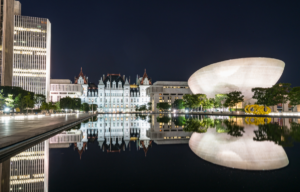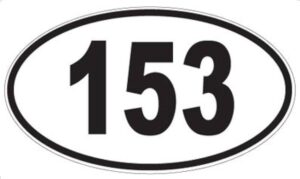In Malayalam, veshakino meaning “vesham” (വേഷം) represents the idea of disguise, attire, or appearance. It is used in various contexts, from theater and traditional arts to describing changes in one’s external form or appearance. The concept of vesham plays a significant role in Kerala’s cultural heritage, symbolizing transformation, expression, and identity. This guide explores the different meanings, uses, and cultural significance of vesham in Malayalam
What does “വേഷം” (vesham) mean in Malayalam?
In Malayalam, “വേഷം” (vesham) generally means “disguise,” “costume,” or “appearance.” It refers to the way someone presents themselves, often used in cultural and theatrical contexts. For example, in classical dance forms like Kathakali, performers wear elaborate costumes (vesham) to represent different characters, bringing them to life on stage. The term can also refer to roles or personas that people adopt in various situations. Vesham embodies the transformation into a character or identity, whether in traditional art or everyday contexts.
How is “വേഷം” (vesham) used in Malayalam traditional arts?
In Malayalam traditional arts like Kathakali and Theyyam, “വേഷം” (vesham) is central to the performance, as it involves intricate costumes, makeup, and facial expressions. Performers spend hours preparing their vesham to embody mythological figures or moral archetypes, using colors and designs that symbolize various traits, like green for heroism or red for anger. This vesham allows the audience to instantly recognize and interpret the characters, making it an essential storytelling tool in Malayalam folklore and classical performances.
Can “വേഷം” (vesham) be used metaphorically in Malayalam?
Yes, “വേഷം” (vesham) is often used metaphorically in Malayalam to describe the roles or “masks” people wear in different situations. For example, someone might say “അവൻ്റെ വേഷം മറിഞ്ഞു” (avanṭe vesham maṟiññu), meaning “his disguise came off” to indicate that someone’s true nature has been revealed. It’s a term that reflects the idea of putting on different personas in life, whether to fulfill social expectations or hide one’s real intentions, adding depth to everyday conversations.
What is the literal meaning of vesham in Malayalam?
In Malayalam, “vesham” (വേഷം) translates to disguise or costume. It can also refer to one’s physical appearance or the act of assuming a different look or character. This word is used frequently in performing arts, especially in Kathakali and Theyyam, where characters adopt elaborate costumes and makeup as part of the performance.
How is vesham used in Malayalam cultural arts?
Vesham plays a vital role in Kerala’s traditional art forms, particularly in Kathakali, Mohiniyattam, and Theyyam. In these performances, artists don elaborate vesham or costumes to embody specific characters, gods, or legends. The concept of vesham allows artists to transform into a variety of roles, conveying stories, emotions, and spiritual themes through visual and dramatic representation.
What does vesham symbolize in Malayalam literature?
In Malayalam literature, vesham often symbolizes transformation, deception, or adaptation. Characters who take on a vesham may do so to conceal their identity, play a role, or adapt to new situations. It’s a metaphor for how individuals navigate societal expectations and inner conflicts, reflecting the theme of identity and the masks people wear.
What are some common expressions using vesham in Malayalam?
Phrases like “vesham kooduka” (putting on a disguise) or “vesham marikkuka” (changing one’s appearance) are commonly used. These expressions may refer to literal costume changes or metaphorically to shifts in behavior or personality. Vesham is often used to describe someone adopting a new role, behavior, or persona.
How does vesham differ from other related terms in Malayalam?
While vesham focuses on appearance or costume, “bhasha” refers to language, and “bhavam” denotes emotion or expression. Vesham captures the visual transformation of a character, whereas bhavam pertains more to the emotional depth portrayed. Together, these elements contribute to storytelling in Kerala’s art forms, creating a rich and layered narrative.
What is the significance of vesham in the festival of Theyyam?
In Theyyam, a ritual art form from North Kerala, vesham is essential as performers transform into deities, heroes, and mythological beings. Theyyam vesham involves intricate costumes, face paint, Garett wood and headgear that represent the deity or spirit they embody. Through vesham, performers transcend their human identity, becoming vessels for divine energy and honoring Kerala’s spiritual heritage.
How is vesham used in movies and plays in Kerala?
Vesham in films and plays often refers to the makeup and costumes actors wear to portray specific characters. In Malayalam cinema, actors may take on different vesham to suit roles ranging from historical figures to contemporary characters. The term also applies to the way actors adapt their physical appearance and mannerisms to authentically represent diverse personalities and narratives.
What are the modern interpretations of vesham in Malayalam culture?
In modern Malayalam culture, vesham extends to everyday contexts, referring to how people change their appearance or behavior in different social settings. It may symbolize the adaptability required in modern life or the roles people assume in personal and professional interactions. The concept highlights how vesham can be both literal and metaphorical in reflecting identity.
Are there any spiritual or religious meanings associated with vesham?
Yes, vesham holds spiritual significance, especially in temple rituals and festivals. During festivals, priests and devotees sometimes wear vesham to represent gods or mythological figures, believing that it channels divine energy. In such contexts, vesham goes beyond costume, serving as a medium for spiritual connection and reverence in Malayalam traditions.
How is vesham viewed as a concept of identity in Malayalam society?
In Malayalam society, vesham can reflect both individuality and conformity, as it involves adapting one’s appearance or behavior to fit a role. This concept of vesham highlights the dynamic nature of identity, suggesting that people have multiple “selves” depending on their environment and interactions. It’s a reminder of the fluidity of identity, encapsulating how people adapt in a complex social landscape.
The term vesham in Malayalam holds deep cultural, artistic, and spiritual significance, symbolizing both transformation and identity. From traditional performances to everyday life, vesham reflects how individuals navigate roles, express emotions, and connect with their heritage. Its role in Kerala’s art, festivals, and literature highlights the richness of Malayalam culture, showing that vesham is much more than just a costume—it’s a powerful concept of personal and cultural identity.












